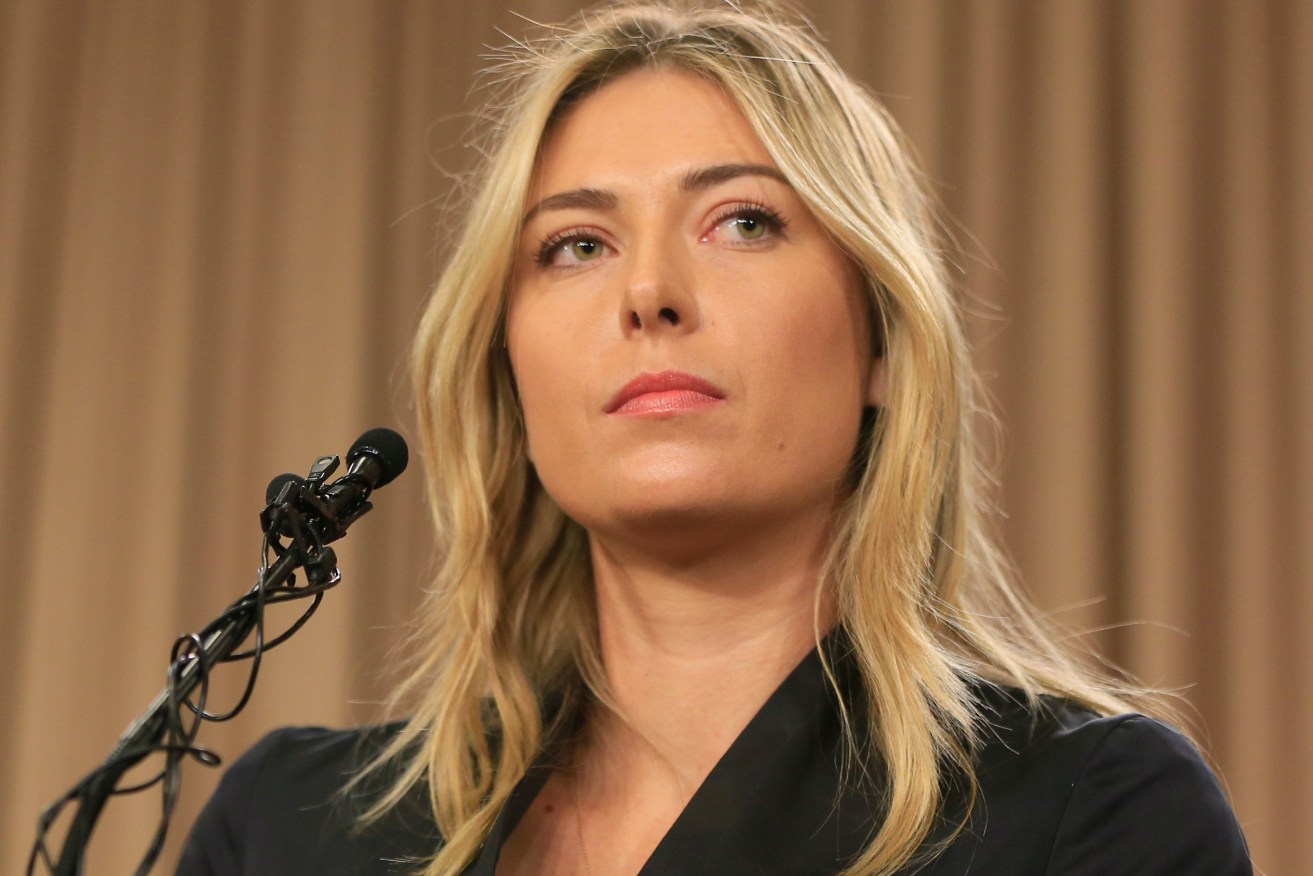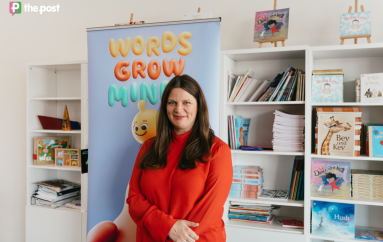Sharapova banned for two years
The career of Russian former world No.1 Maria Sharapova was in tatters on Wednesday after she was given a two-year ban by the International Tennis Federation (ITF) following her positive test for meldonium at this year’s Australian Open.

Maria Sharapova. Photo: Damian Dovarganes, AAP.
In a statement the ITF said the 29-year-old’s ban would be backdated to January 26 this year, meaning her results and prize money from the Australian Open, where she reached the quarter-finals, would be cancelled.
Sharapova said she would appeal to the Court of Arbitration for Sport (CAS), describing the punishment as “unfairly harsh”.
She said an independent tribunal in London on May 18-19 had found that she had not intentionally violated anti-doping rules.
In a statement on its website the ITF said the ban had been backdated due to Sharapova’s ‘prompt admission’ of her violation.
“Ms Sharapova, a 29-year-old player from Russia, provided a urine sample on 26 January 2016, after her quarter-final match at the 2016 Australian Open in Melbourne, Australia,” the statement said.
“That sample was sent to the WADA-accredited laboratory in Montreal, Canada, for analysis, and was found to contain meldonium, which is a metabolic modulator that is included under section S4 (Hormone and Metabolic Modulators) of the 2016 WADA Prohibited List, and therefore is also prohibited under the Programme.”
Meldonium was added to WADA’s list of banned substances at the start of the year after evidence that it boosted blood flow and enhanced athletic performance.
Sharapova, the world’s highest-paid female athlete, stunned the sporting world in March when she announced that she had tested positive for meldonium, a drug she said she had been taking for a decade to treat diabetes and low magnesium.
At the time Sharapova, the highest-profile tennis player to fail an anti-doping test, said she had made “a huge mistake” blaming her failure to read an email sent by the ITF that meldonium had been added to the banned list.
Sharapova, who could have been given a four-year ban, reacted to the punishment on her Facebook page.
“The ITF spent tremendous amounts of time and resources trying to prove I intentionally violated the anti-doping rules and the tribunal concluded I did not,” she said.
“You need to know that the ITF asked the tribunal to suspend me for four years — the required suspension for an intentional violation – and the tribunal rejected the ITF’s position.
“While the tribunal concluded correctly that I did not intentionally violate the anti-doping rules, I cannot accept an unfairly harsh two-year suspension.”
Sharapova’s career now hangs in the balance.
Unless her ban is reduced she will not be eligible to play until after the 2018 Australian Open when she would be 30.
Reuters




